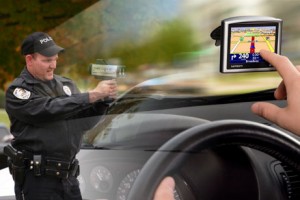 GPS Data Helps Man Fight Speeding Ticket in Traffic Court
GPS Data Helps Man Fight Speeding Ticket in Traffic Court
Sasha Katta got clocked by a cop and his radar gun driving over 40 miles per hour in a 25 mph zone.
Katta said, “In a panicked mental state, I simply handed over my driver’s license, insurance, and registration information without asking any questions. I was confident that I was within the posted speed limit in the back of my mind, but I just apologized and went my way instead of speaking up.”
After Katta handed over his info and signed the ticket, he remembered his GPS was running when he got pulled over.
After looking at the data and doing some research, Katta discovered that he never topped the 25 mph speed limit and decided to fight the ticket in traffic court.
Katta said “I pulled up my driving history for that day, which displays information such as distance, average speed, average moving speed, and max speed. I found that my GPS only recorded a top speed of just 26 miles per hour, significantly lower than the cited speed of 40 mph. I now knew I was not speeding and had the data to prove it in court.”
“I decided to write down an account of the entire situation just a few days later and even exported the data from my GPS to a spreadsheet so I would not lose or forget any important details. I even came across an ongoing Sonoma County Superior Court case regarding the accuracy of GPS devices and radar guns to back up my claim.”
“About six months later, it was my big day in court. Once I made my way into the court room after going through metal detectors, I had to sign a document to indicate whether I plea guilty or not guilty. I choose the latter and got seated,” Katta said.
“I eventually took the stand nervously. The plaintiff presented information from city plans noting that my speed limit was inappropriate for the area. When it was my turn to make a statement, I remained calm and spoke respectfully.
Taking hints from a lawyer that spoke on behalf of a defendant shortly before me, I decided to ask the officer a few questions about the day he cited me. It turned out that the officer did not recall the last time he attended radar gun training, when the device was last calibrated, or the unit’s model number.
I then presented my time stamped GPS data with details about my average moving speed and maximum speed during my short drive home. Both numbers were well within the posted speed limits.
I also made it clear to the judge that I had no other prior driving records or violations. After a lengthy pause, the judge asked how I obtained the GPS data. I provided a detailed explanation about my GPS system and how I exported the data,” said Katta.
The Verdict:
“The judge took a moment and declared that I was not guilty, but he had an unusual statement that followed. To avoid any misinterpretations about his ruling, he chose to clarify his decision by citing the lack of evidence on the officer’s part. He mentioned that he was not familiar enough with GPS technology to make a decision solely based on my evidence, but it was an important factor.”
Source: Skatter.com
